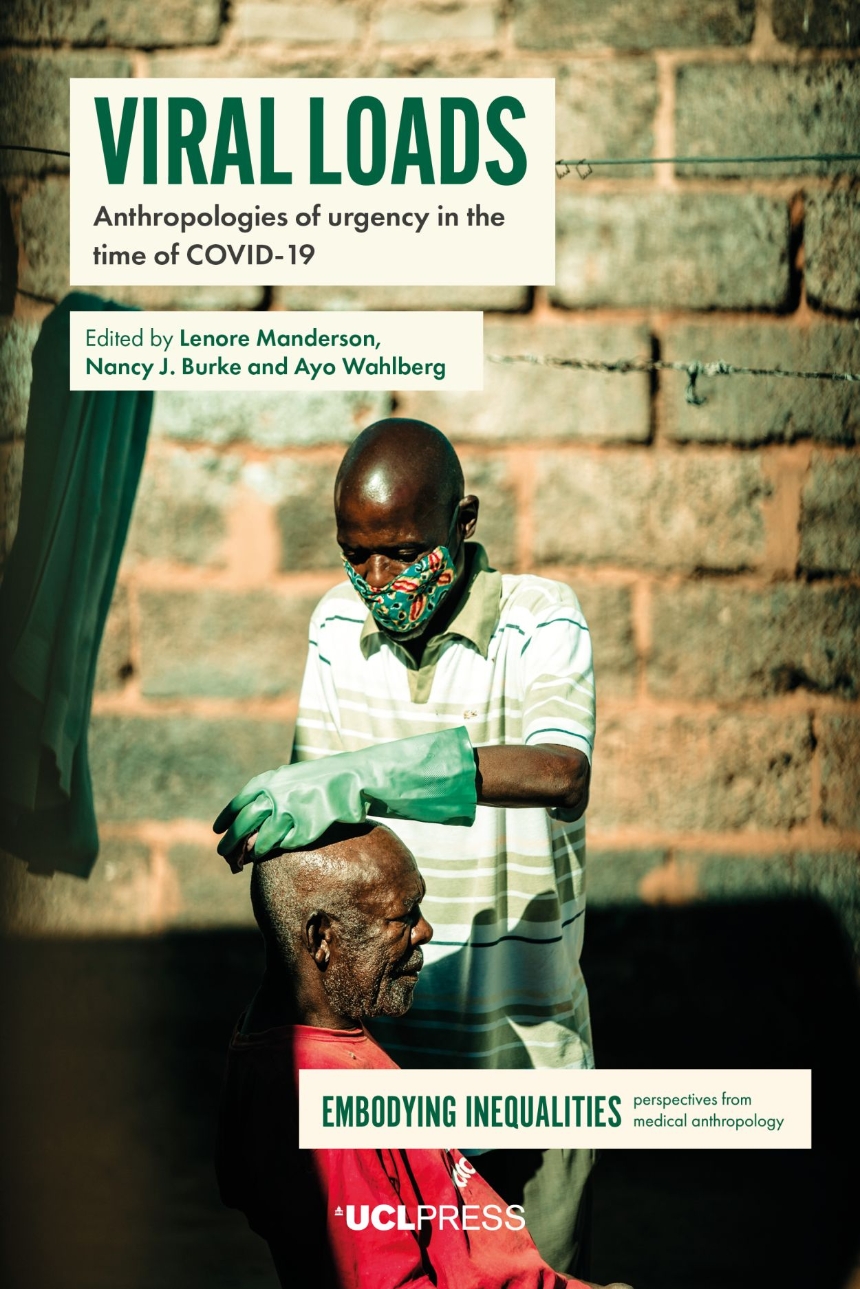A diagnosis of global inequalities exploited by COVID-19 and how we might evolve.
The COVID-19 pandemic disrupted some lives more than others. While more than half the world’s population experienced physical restrictions in the wake of the virus, Viral Loads reveals how the international response placed disparate burdens on exploited communities across the globe. Contributors from six continents situate the pandemic within a highly connected yet exceedingly unequal world marked by fragmented communities, austere economies, and unstable governments. Ambitious in its scope, Viral Loads insists that medical anthropology must be part of any future efforts to build a new post-pandemic world.
The COVID-19 pandemic disrupted some lives more than others. While more than half the world’s population experienced physical restrictions in the wake of the virus, Viral Loads reveals how the international response placed disparate burdens on exploited communities across the globe. Contributors from six continents situate the pandemic within a highly connected yet exceedingly unequal world marked by fragmented communities, austere economies, and unstable governments. Ambitious in its scope, Viral Loads insists that medical anthropology must be part of any future efforts to build a new post-pandemic world.
488 pages | 20 halftones | 6.14 x 9.21 | © 2021
Embodying Inequalities: Perspectives from Medical Anthropology
Anthropology: Cultural and Social Anthropology
Sociology: Medical Sociology
Reviews
Table of Contents
List of figures List of tables List of contributors Acknowledgements 1.Introduction: stratified livability and pandemic effects Ayo Wahlberg, Nancy J. Burke and Lenore Manderson Part I: The power of the state 2.Care in the time of COVID-19: surveillance, creativity, and sociolismo in Cuba Nancy J. Burke 3.Militarising the pandemic: lockdown in South Africa Lenore Manderson and Susan Levine 4.Rights, responsibilities, and revelations: COVID-19 conspiracy theories and the state Elisa J. Sobo and Elzbieta Drazkiewicz Part II: Exclusion and blame 5.The 2020 Los Angeles uprisings: fighting for Black lives in the midst of COVID-19 Hanna Garth 6.The biopolitics of COVID-19 in the UK: racism, nationalism and the afterlife of colonialism Jennie Gamlin, Sahra Gibbon, and Melania Calestani 7.The shrouds stealers: coronavirus and the viral vagility of prejudice Aditya Bharawaj 8.Unprecedented times? Romanian Roma and discrimination during the COVID-19 pandemic Cristina A. Pop 9.Turkey’s Diyanet and political Islam during the pandemic Oguz Alyanak 10.Citizen vector: scapegoating within communal boundaries in Senegal during the COVID-19 pandemic Ato Kwamena Onoma Part III: Unequal burdens 11.Pandemic policy responses and embodied realities among ‘waste-pickers’ in India Surekha Garimella, Shrutika Murthy, Lana Whittaker and Rachel Tolhurst 12.The amplification effect: impacts of COVID-19 on sexual and reproductive health and rights in Indonesia Linda Rae Bennett and Setiyani Marta Dewi 13.Vulnerabilities within and beyond the pandemic: disability in COVID-19 Brazil Claudia Fonseca and Soraya Fleischer 14.‘You are putting my health at risk’: genes, diets and bioethics under COVID-19 in Mexico Abril Saldaña-Tejeda 15.Scarcity and resilience in the slums of Dhaka city, Bangladesh Sabina Faiz Rashid, Selima Kabir, Kim Ozano, Sally Theobald, Bachera Aktar and Aisha Siddika Part IV: The reach of care 16.Making do: COVID-19 and the improvisation of care in the UK and US Ellen Block and Cecilia Vindrola-Padros 17.Carescapes unsettled: COVID-19 and the reworking of ‘stable illnesses’ in welfare state Denmark Sofie Rosenlund Lau, Marie Kofod Svensson, Natasja Kingod, and Ayo Wahlberg 18.Care within or out of reach: fantasies of care and connectivity in the time of the COVID-19 pandemic Earvin Charles Cabalquinto and Tanja Ahlin 19.Pandemic times in a WhatsApp-ed nation: gender ideologies in India during COVID-19 Haripriya Narasimhan, Mahati Chittem, and Pooja Purang 20.Purity’s dangers: at the interstices of religion and public health Tsipy Ivry and Sarah Segal-Katz Part V: Lessons for a future 21.Fracturing the pandemic: the logic of separation and infectious disease in Tanzania Rebecca Marsland 22.Living together in precarious times: COVID-19 in the Philippines Gideon Lasco 23. COVID-19 in Italy: a new culture of healthcare for future preparedness Chiara Bodini and Ivo Quaranta Index

